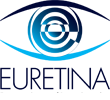The European Commission has granted marketing authorization in the European Union (EU) for new Eylea 8 mg (aflibercept 8mg, 114.3 mg/ml solution for injection) for the treatment of two major retinal diseases, neovascular (wet) age-related macular degeneration (nAMD) and visual impairment due to diabetic macular edema (DME). Eylea 8mg is approved for administration at extended treatment intervals of up to every 4 months, following 3 initial monthly doses. In patients with stable visual outcomes, treatment intervals of up to 5 months may be considered. Eylea 8mg is the only treatment in the EU that is approved for extended treatment intervals of up to 5 months in nAMD and DME.
According to the clinical sponsor (Regeneron), the recommended dose for aflibercept is 8mg every 4 weeks (monthly) for the first 3 months across all indications, followed by 8mg every 8 to 16 weeks (2 to 4 months) in wet AMD and DME and every 8 to 12 weeks (2 to 3 months) for DR. The sponsor’s summary of the results were built upon the 48-week results of PULSAR and PHOTON – two double-masked, active-controlled pivotal trials evaluating the 8mg dose compared to 2mg. Both the PULSAR trial in wet AMD (N=1,009) and PHOTON trial in DME (N=658) met their primary endpoint, demonstrating non-inferior and clinically equivalent vision gains at 48 weeks with both 12- and 16-week dosing regimens after only 3 initial monthly doses, compared to an aflibercept 8-week dosing regimen after initial monthly doses (3 in PULSAR and 5 in PHOTON). According to the sponsor, the vast majority of patients randomized at baseline to the 8mg dose 12- or 16-week dosing regimens (following 3 initial monthly doses) were able to maintain these dosing intervals through 48 weeks. In addition, the most common adverse reactions (≥3%) reported were cataract, conjunctival haemorrhage, intraocular pressure increased, ocular discomfort/eye pain/eye irritation, vision blurred, vitreous floaters, vitreous detachment, corneal epithelium defect and retinal haemorrhage.
Following the EMA announcement on the approval, Dr. Jean-François Korobelnik, Professor of Ophthalmology and Head of the Department of Ophthalmology at University Hospital of Bordeaux in France, and a trial investigator, stated that, “Eylea 8 mg is an important advancement in retinal care as it provides great and long lasting control of the disease. Doctors may extend their patients interval to 4 months, right after 3 initial monthly doses, based on their judgement. This then does not only mean less eye injections and doctor visits for patients but could also help to mitigate capacity constraints faced in clinical practices in Europe.” In addition, Dr. Michael Devoy, Chief Medical Officer of Bayer’s Pharmaceuticals Division commented that, “the approval of Eylea 8 mg in the European Union marks a significant milestone in addressing the high unmet need to reduce the patients’ burden of retinal disease. Building on the standard of care therapy Eylea 2 mg, patients have now the opportunity to benefit from Eylea 8 mg with less frequent injections with comparable efficacy and safety to Eylea 2 mg”.
